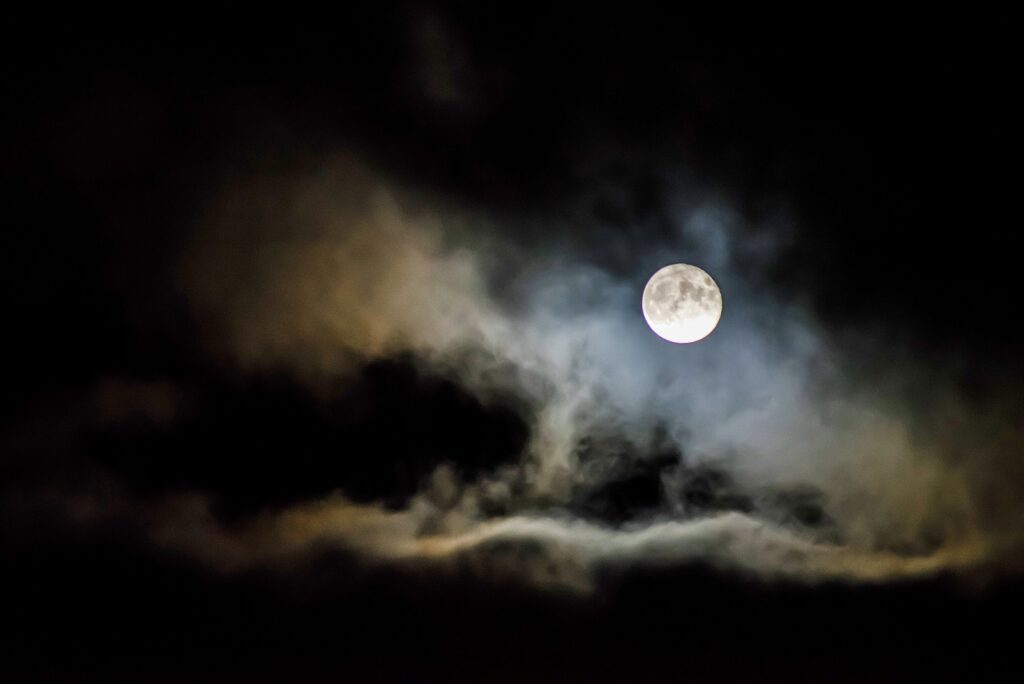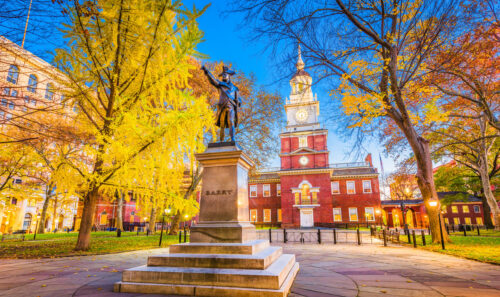In the midst of struggles and crises all across our nation, our friends and colleagues share what they think we should be reading to understand this moment and to fortify ourselves against the influence of ideologues and the movements that would undermine a strong civil society. The ninth in a series.
Read the previous installments of our “Readings for Troubled Times” series here. This continues our effort to understand the times in which we live by recommending readings that are relevant to the strange moment in which we find ourselves.
What you should read: “Choose Something Like a Star,” by Robert Frost.
Why: We are strange animals. Unlike most of our mammalian counterparts, we take about two decades to reach physical maturity, and can live out our lives having never achieved maturity of thought or character. In this poem, Frost describes the kind of education we require: learning that asks us to grapple with difficult things, grounded in wonder at reality. It's difficult for us to live freely, rather than enslaved to passion and trend. Doing so requires that we see and make choices in accordance with reality as it is, rather than as we would have it be. This poem, if you commit it to memory (which is worth doing), serves as a constant reminder against letting one's own thoughts and actions be dictated by the group-think crippling our common life. Frost, like the star he considers, “asks of us a certain height, / So when at times the mob is swayed / To carry praise or blame too far, / We may choose something like a star / To stay our minds on and be staid.”
Elizabeth Winston
Consultant
American Philanthropic
What you should read: “What to the Slave Is the Fourth of July?”, by Frederick Douglass.
Why: The contemporary “1619 vs. 1776” debate is not new. In 1840s Abolitionist circles, the dominant opinion held that slavery was inextricable from and irredeemably corrupted the U.S. founding and Constitution. “Inalienable rights,” the argument went, was just slaveholder rhetoric.
It was in these circles that young Frederick Douglass, freshly escaped from bondage, came into his own as a political thinker—not to mention one of the most powerful orators of his century or any other. But while Douglass initially espoused the “burn it all down” school of thought with regards to the nation’s founding, he soon came to embrace the Founding as articulating ideals of freedom imperfectly realized.
That didn’t mean he would play the tin whistle in your patriotic marching band, though. And when the Ladies’ Anti-Slavery Society of Rochester asked him to deliver the prestigious Fourth of July oration in 1852, Douglass quickly pivoted from a reverential account of the Founding Fathers’ heroic accomplishment to a blistering indictment of the nation’s hypocrisy with fire enough to set torch to the corpse of Jefferson moldering in his Monticello casket. The institution of slavery—enshrined in laws, market, and pulpits across the land—he says, “brands your republicanism a sham, your humanity as base pretence, and your christianity as a lie” [sic]. He doesn’t end there, however, but concludes with a close reading of the Constitution as “a GLORIOUS LIBERTY DOCUMENT” twisted and marred by the proponents of slavery.
So why read Douglass’s speech today? For one, it’s a staggering—and profoundly moving—literary accomplishment, an example of righteous indignation done right. But particularly timely is Douglass’s moral and political vision, capable of encompassing both the endless horror scenes that etch our nation’s history and clinging firmly to its founding principles and institutions. “Notwithstanding the dark picture I have this day presented, of the state of the nation,” Douglass concludes, “I do not despair of this country.”
Iain Bernhoft
Managing Consultant, Writing and Communication
American Philanthropic
What you should read: The Wrong Side of Paris, by Honoré de Balzac.
Why: Balzac’s life in the early 19th century spanned one of the most tumultuous periods in history, with the French Revolution beginning 10 years prior to his birth in 1799 and a decades-long progression of coups, uprisings, restorations, and revolts unfolding past his death in 1850. Balzac never lived anything but “troubled times.” This book masterfully conveys both the tumult of that period and a path for escaping it through charity and religious devotion. Though Balzac is typically known for his poison pen and his vivid portraiture of corrupt and social-climbing characters, this novel shows a forgotten side of the great French writer—one that celebrates man’s capacity for good in the face of history’s darkest social forces.
Scott Rubush
Managing Consultant
American Philanthropic
What you should read: Invisible Man, by Ralph Ellison and Dignity: Seeking Respect in Back Row America, by Chris Arnade.
Why: Our media militates towards warped caricatures of social movements and ideas, all the better to hook you in with news and commentary that affirms the fundamental rightness of your opinion and the absurdity of others. Therefore I'll recommend two works.
I would urge my right-of-center friends to pick up Ralph Ellison's Invisible Man, one of the great 20th-century American novels. Influenced heavily by T.S. Eliot and by Dostoevsky's Notes from the Underground, the work's jazzy impressionistic storytelling is an incredible vehicle for exploring the depths and layers of the black American experience. If you want to make a good faith effort at grappling with race relations in America, there is no better and more gripping place to start.
For my left-of-center friends, I would recommend Chris Arnade's Dignity, an arresting portrait of poverty in America garnered through months of travel throughout the country, befriending and photographing people in some of our most downtrodden locales. Arnade is a man of the left, but his book seems to have mostly found a following among the right. It's a shame, for his purely observational method leaves plenty to challenge everyone, from the complexities of racism to the irreplaceable role of religion in civil society. But most of all, Dignity helps us question the very idea of success that our cultural and economic institutions are built around—an increasingly urgent task in an increasingly frayed society.
Matt Gerken
Managing Director
American Philanthropic
What you should read: Watership Down, by Richard Adams
Why: It is a timeless classic too often considered “just a kids book.” It is a tale of adventure, heroism, and brotherhood among rabbits that speaks to the child in all of us and rekindles imagination long dormant in adults. The book’s simplicity belies the depth to which it connects with our human needs for companionship, trust, home, and most of all: hope. Watership Down is a story of hope. That is something we desperately need right now. It is also a momentary escape from our bleak world. Read it with an open mind! You will be enraptured in a harrowing journey and transported to a majestic countryside as a band of hardy rabbits build a new home, overcome mortal threats, and triumph over all the odds.
Devon Ironside
Director of Data Services
American Philanthropic






